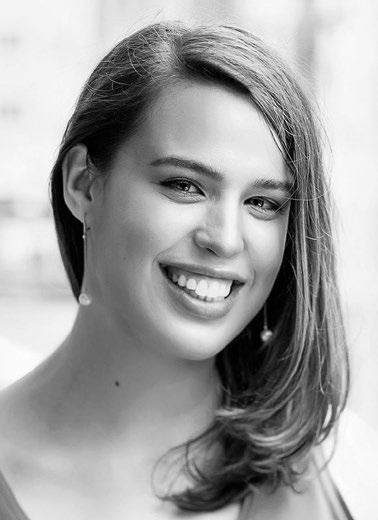Columbia College | Columbia University in the City of New York
Hannah Howard ’09 Serves Up a Feast in Debut Memoir
Some girls write their deepest secrets in a private diary. When Hannah Howard’09 was 11, she created a ’zine recounting all her cringe-worthy crushes and pre-teen angst for anyone to read. “It was all my open heart, just bleeding across the page,” she recalls.

Her debut memoir, Feast: True Love in and out of the Kitchen (Little A, $24.95), is no different.
Most people would be terrified of letting the world know about deeply revealing things like eating disorders or abusive relationships. But by Howard’s own admission, she has always had “this strange compulsion” to share vulnerable, personal events in writing.
Howard’s vulnerability more than pays off in Feast, which chronicles her rise through the ranks of the New York City restaurant scene — all the while binging and starving herself. The bildungsroman explores how a foodie makes peace with food, how it is both her greatest love and worst nightmare.
We see Howard develop her hatred for her thighs when she’s just 12 and follow her coming of age as she takes us behind the buzzy scenes at the Michelin-starred Picholine and critically adored Casellula. She thirsts for love and hungers for acceptance, fighting the drug of “bad” food and bad men — eventually quitting both thanks to an AA-like recovery group. The memoir is as much a love affair with food, and the chefs and grocery scions that make up its world, as it is a love affair with NYC.
The book originated with personal essays she wrote as a creative writing and anthropology major at the College. Indeed, Columbia is a major supporting character — it is her escape from what she perceives as Baltimore’s suburban monotony, an Ivy League haven where her intellectual ambitions won’t be derided but championed. She recounts meeting her best friend, Ursula Kwong-Brown ’10, at the outdoor orientation program before freshman year, cooking at literary society Alpha Delta Phi (ADP) on the old-school, 12-burner Vulcan and writing notes about Derrida and Lacan between reams of pages of calorie logs: “I have lost and gained the mass of a small army. But mostly, I have lost myself.”

Vlad Kfrg
The College is still a part of Howard’s story. She says she will never forget her “Techniques of the Short Story” class with professor (and author) Sam Lipsyte, who described her debut as “a gripping, moving memoir, a book that lives up its name.”
“Around graduation, he told me, ‘Don’t stop writing,’” Howard says. “It really stuck with me and touched me, and I thought, ‘Can’t let him down. I gotta keep writing.’”
She also had a fateful “Senior Poetry Workshop” with Professor Josh Bell. “One of the things he taught me is making action happen, which is really part of something I struggle with in fiction or nonfiction,” Howard says. “Josh would always say, ‘Oh, there has to be a turn, there has to be a surprise.’ So, even in the microcosm of poems, in a way, something did have to happen. There did have to be plot.”
Howard continued writing after graduating, freelancing for outlets like American Express and cooking up the copy at Dean & DeLuca. A coworker at New York Natives, where she was a columnist, introduced her to his agent, who signed her after reading 50 pages of sample chapters. Together they created a proposal, which was rejected by 15 publishers.
And then somebody finally wanted it, and that somebody happened to be poet Morgan Parker ’10 — with whom Howard had taken Bell’s poetry class — and who was now an editor at Amazon’s literary fiction and nonfiction imprint Little A. “Because it’s such a personal, vulnerable memoir, working with somebody I knew just felt like a good idea, and it did turn out to be,” Howard says. “They gave me a lot of TLC, but then I had the draw of Amazon to sell and market the books.”
Her advice to future aspiring Hannahs is to “sit at your laptop and write even when it hurts.”
The hurt is worth it, she promises: “Even now I get nervous about how the book is doing in the world, and I think that the real answer is: If a few people read something and feel less alone, and it changes something in them, then it’s totally worth it.”
Yelena Shuster ’09 has written for The New York Times, Cosmopolitan, InStyle and more. She founded and runs TheAdmissionsGuru.com, where she edits admissions essays for high school, college and graduate school applications.
Issue Contents
Published three times a year by Columbia College for alumni, students, faculty, parents and friends.
Columbia Alumni Center
622 W. 113th St., MC 4530, 6th Fl.
New York, NY 10025
212-851-7852
cct@columbia.edu
Columbia Alumni Center
622 W. 113th St., MC 4530, 4th Fl.
New York, NY 10025
212-851-7488
ccalumni@columbia.edu

